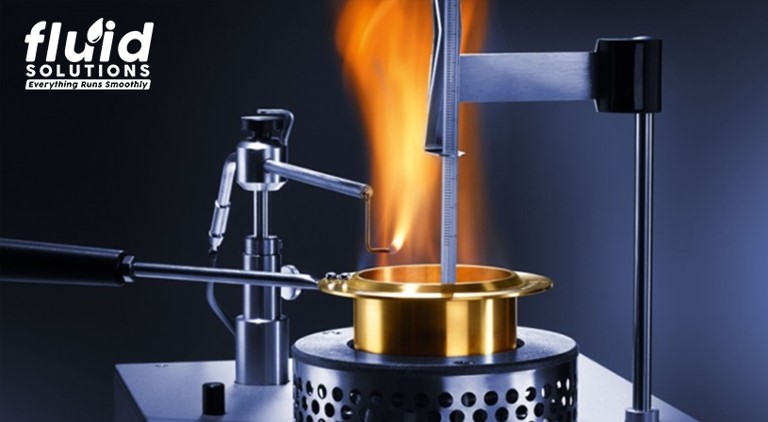
Industrial lubricants are formulated for a dual purpose: protecting machinery from friction and withstanding the extreme temperatures of harsh environments. To navigate this demanding landscape, selecting lubricants that excel in both lubrication and heat resistance is crucial for maximizing equipment lifespan.
Understanding the critical properties of Flash Point, Fire Point, and Auto-Ignition Temperature is paramount when navigating the dynamic world of industrial lubricants. By delving into the significance of these factors, we can ensure both safety and optimal performance of lubricants in various industrial settings. This journey will unveil how these properties influence lubricant selection and ultimately contribute to the success of your operation.
Temperature as a Key Factor
Temperature considerations are pivotal in the realm of lubricant selection, as they directly impact safety and performance. Flash Point, Fire Point, and Auto-Ignition Temperature stand as key parameters in this regard, guiding decision-making processes to enhance operational efficiency and mitigate risks.
Flash Point: Safety Threshold in Lubricant Selection
Definition and Significance
When lubricants are exposed to high temperatures, usually above 200°C, they release vapors that can catch fire when they come into contact with air or an ignition source. This moment of ignition is known as the Flash Point. Flash Point signifies the temperature at which lubricant vapors ignite upon exposure to an ignition source. While not indicative of lubricant performance, it serves as a critical safety threshold. Opting for lubricants with a Flash Point higher than typical operating temperatures is imperative to mitigate fire hazards and ensure workplace safety.
Handling and Storage Procedures
Proper handling and storage of lubricants, particularly those with low Flash Points, are essential to minimize safety risks. Implementing stringent protocols and adhering to industry standards can safeguard against accidents and promote a safe working environment.
Fire Point: Sustained Ignition Temperature
Definition and Relevance
Closely related to Flash Point, the Fire Point is the temperature at which a lubricant sustains combustion. This metric goes beyond ignition, offering insights into the lubricant’s ability to resist further combustion. It acts as a key marker for assessing the overall safety of lubricants in high-temperature applications.
Unlike Flash Point, which indicates initial ignition, Fire Point underscores the sustainability of combustion. Understanding this distinction is crucial for assessing fire risks and implementing appropriate preventive measures in industrial settings.
Auto-Ignition Temperature: Spontaneous Combustion Threshold
Definition and Importance
Auto-Ignition Temperature denotes the temperature at which lubricants ignite spontaneously, without external ignition sources. This parameter is significant in high-temperature environments, such as metal diecasting foundries or glass-making industries.
Auto-Ignition Temperature is the lowest temperature at which a substance can spontaneously ignite without an external ignition source. For instance, the auto-ignition temperature of diesel fuel is approximately 256°C (492°F). If diesel fuel reaches this temperature, it will ignite on its own, without any external flame or spark.
Selecting lubricants with safe Auto-Ignition Temperatures is imperative to prevent accidents and ensure operational continuity.
Recommendations for Use in High-Risk Industries
In sectors characterized by heightened fire risks, such as metal diecasting foundries, the use of Fire-Resistant Hydraulic Fluids (FRHF) is advisable. These specialized lubricants offer enhanced safety features, mitigating the risks associated with accidental contact between hot materials and lubricants.
Tailored for high temperature applications, fire-resistant hydraulic fluids add an extra layer of safety to industrial operations. Their unique characteristics minimize the risk of ignition, making them ideal for machinery operating in environments where conventional lubricants may pose heightened risks.
Consult with Lubrication Experts: Your Strategic Partners in Peak Performance
Selecting the right industrial lubricant can be daunting. The complexities of lubricant properties, the nuances of your specific machinery, and the ever-present need for optimal performance and safety can leave even the most seasoned engineers scratching their heads. But fear not! This is where lubrication experts step in as your strategic partners, guiding you towards peak operational efficiency.
Why Consult Lubrication Experts?
These highly qualified professionals possess an in-depth understanding of the intricate world of lubricants. They can decipher the complex data sheets, explaining the significance of factors like lubricant Flash Point and Auto-Ignition Temperature in the context of your specific needs, particularly when dealing with high temperature lubricants. But their expertise goes beyond just the lubricant itself.
While the importance of consulting lubrication experts is clear, finding the right partner can feel overwhelming. Look no further than Fluid Solutions! We understand the critical role lubrication plays in your operation’s success. Fluid Solutions has a team of Lubrication Consultants dedicated to addressing concerns and inquiries promptly, ensuring a response within 24 hours to provide expert guidance and support.
Fluid Solutions for High Temperature Applications
Fluid Solutions stands as the trusted ally for hydraulic fluid and industrial lubrication solutions in the Philippines, offering a diverse range of products tailored to meet specific temperature requirements. Whether it’s high-temperature greases, hydraulic oils, lubrication oil, or specialized lubrication solutions, Fluid Solutions delivers unparalleled quality and expertise.
Contact us today at (02) 8370 5928 / (0917) 894 9156 or via email at inquiry@fluidsolutions.com.ph for personalized guidance on selecting the right lubricants for your unique needs.


